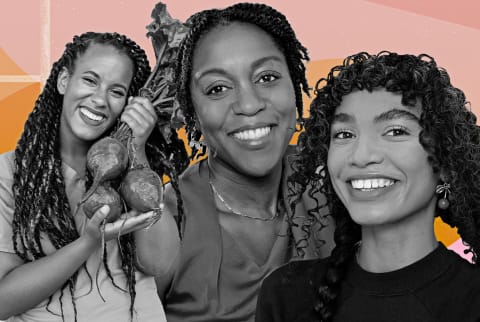It’s imperative to acknowledge how structural racism has made access to healthy food sources a struggle for Black communities. It’s also important to learn from and celebrate Black voices in the food world, so mbg rounded up an ever-growing list of men and women to know and follow. The social and economic advantages white people have because of those long-standing systems drive higher rates of food insecurity among racial and ethnic groups, the study explains. Food insecurity has been followed by the U.S. Department of Agriculture (USDA) for more than 20 years. While there have been fluctuations during those years, “one trend that has continued to persist is the gap in the prevalence of food insecurity between people of color and whites,” they write. This is the USDA’s most recent data on food insecurity (2018): More resources to understand these issues: A post shared by Maya Feller MS,RD, (she/her) (@mayafellerrd) on Feb 27, 2020 at 1:10pm PST A post shared by i am sophia (@sophia_roe) on Sep 13, 2019 at 10:33am PDT A post shared by Jaylynn (@alittlefoodblog) on Jun 4, 2020 at 8:38am PDT



